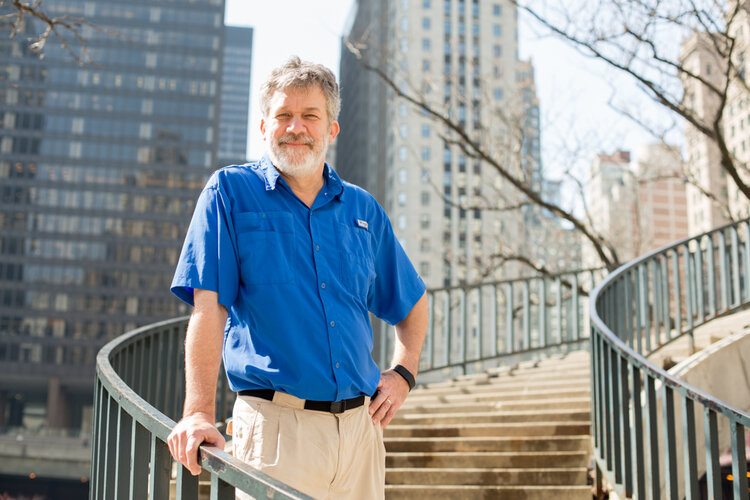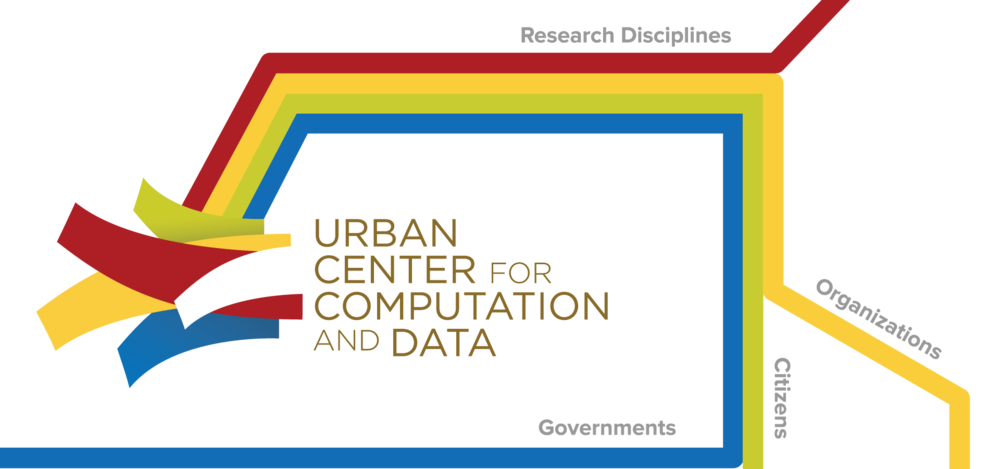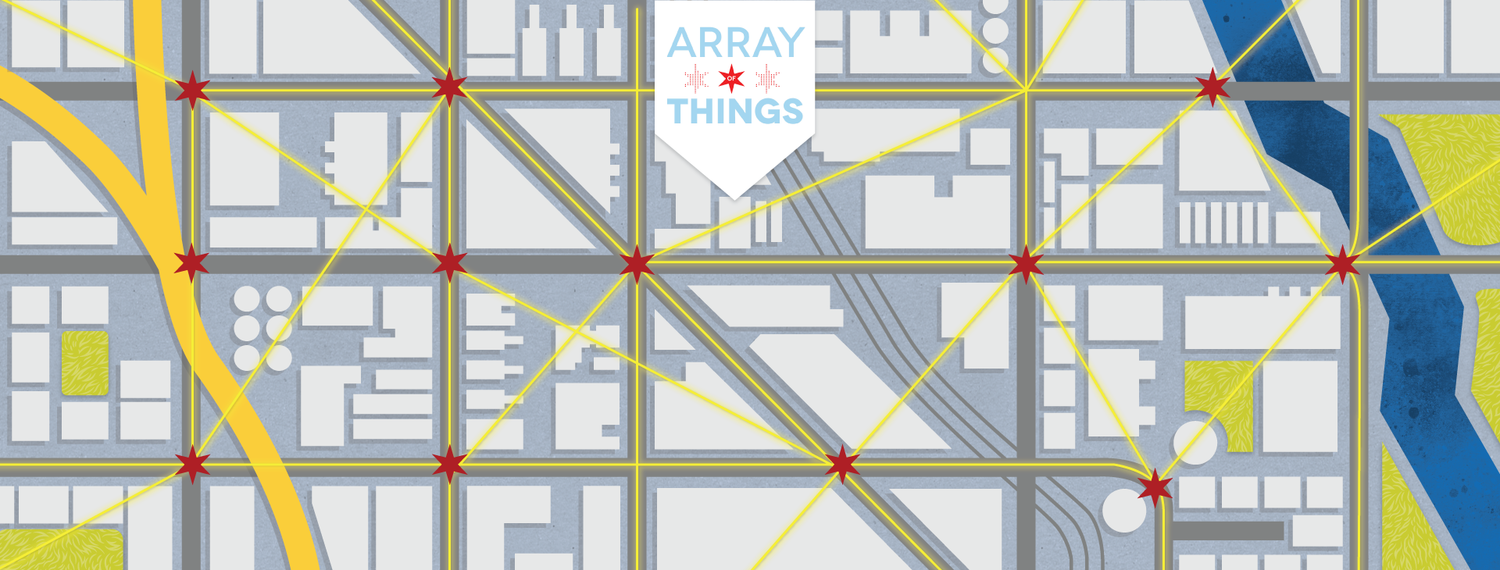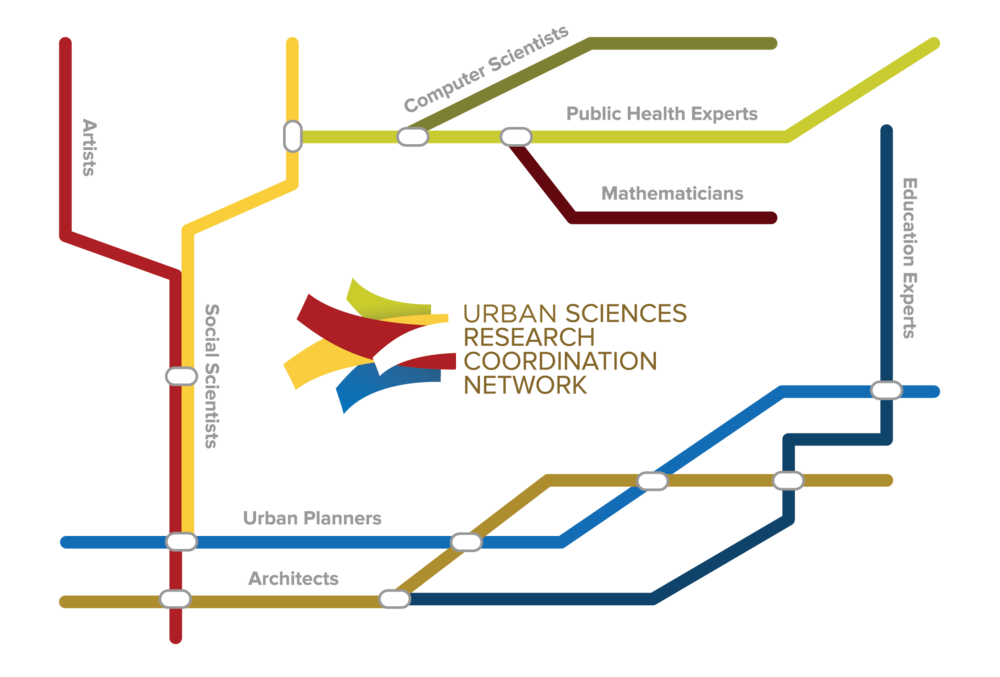open meeting 18 - charlie catlett
Charlie Catlett
Senior Research Scientist, Discovery Partners Institute
Visiting Senior Computer Scientist, Argonne National Laboratory
Founding Director of UrbanCCD
Tuesday February 23rd at 5:30-7:00pm CST
We will start the presentation at 5:30pm CST - hope to (virtually) see everyone there- we will send an link to the presentation to your RSVP
//event link
//about the event
Please join us for the first virtual presentation of 2021 with a brief update from the computation group and a presentation from Charlie Catlett who will discuss initiatives and projects that provide a glimpse into how high-performance cyberinfrastructure, from intelligent sensing to modeling, will be increasingly central to capturing the opportunities, and addressing the challenges, of urbanization and climate change.
We know from experience that using a "smart" phone or wearing a "smart" watch does not make a person smart. For the same reasons, the use of technology in any city is not sufficient to make it smart. For the past decade, 'smart city' projects have emphasized measurement, data analytics, and modeling---all of which are critical to new ways to optimize cities and more importantly, new applications to make cities "better" for their inhabitants. Smart city applications will be most likely to make a city "better" if the city's residents are well-represented in the selection of those applications. In Chicago, what began as an ambitious urban measurement initiative (The Array of Things, or "AoT") almost immediately evolved to emphasize new types of measurements that typically require human observers. Why? Because scientists, policymakers, and residents alike were asking for data that cannot be easily measured with electronic sensors. For instance, going beyond counting vehicles to understanding their flows, the mix of vehicle types, or factors influencing safety. Borrowing from the concept of software-defined networks, our work emphasized programmable devices, or "software-defined sensors." By supporting such platforms, we can begin to explore how intelligent sensors (and other devices) might improve our understanding of cities across a range of dimensions, from social sciences to traffic safety to environmental sciences. Catlett will discuss some lessons learned working with residents and organizations in the City of Chicago, and the expanded vision of the team's current initiative, SAGE, funded through the National Science Foundation.
//about the speaker
Charlie Catlett joined DPI as senior research scientist after two decades as a senior computer scientist at the U.S. Department of Energy’s Argonne National Laboratory. He also is a senior fellow at the University of Chicago’s Mansueto Institute for Urban Innovation. His current research focuses on urban data analytics, urban modeling, and the design and use of sensing and “AI-at-the-edge” computing technologies embedded in urban infrastructure and the environment. He was the principal investigator of the NSF-funded “Array of Things” (AoT), an experimental urban infrastructure to measure the city’s environment with sensors and embedded (“edge”), remotely programmable artificial intelligence hardware. He also is a co-principal investigator of the NSF-funded “SAGE: Software-Defined Sensor Network” project, a joint effort including Northwestern University, Argonne National Laboratory, the University of Chicago, and others.
Catlett served as Argonne’s chief information officer from 2007-2010. Before joining UChicago and Argonne in 2000, he was chief technology officer at the National Center for Supercomputing Applications at the University of Illinois at Urbana-Champaign. From NCSA’s founding in 1985, he participated in the development of NSFNET, one of several early national networks that evolved into what we now experience as the Internet. During the exponential growth of the web following the release of NCSA’s Mosaic web browser, his team developed and supported NCSA’s scalable web server infrastructure.
Catlett founded the Urban Center for Computation and Data (UrbanCCD), now part of the Mansueto Institute, at the University of Chicago in 2012. He was recognized as one of Chicago’s “Tech 50” technology leaders by Crain’s Chicago Business in 2014, and nationally as one of “25 Doers, Dreamers & Drivers” of 2016 by Government Technology magazine. He also is the recipient of the Argonne Board of Governors 2019 Distinguished Performance Award. Catlett is a computer engineering graduate of the University of Illinois at Urbana-Champaign.



